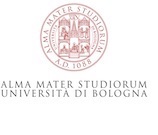2021 Edition Participants

Natalia Stefanni Aguilar Fernandes
Journalist, Pontifícia Universidade Católica de CampinasMy name is Natalia Fernandes, I am a journalist living in Brazil, more specifically in the city of Campinas, São Paulo. I have been working with content for the web for 3 years, and I am also involved with social movements for minorities in my city. My favourite hobbies are reading and meeting people from different cultures. I am very interested in the subject matter of this Summer School, and I want to contribute in the best way I can.

Elia Alberici
Master's student in "Global Cultures", University of BolognaMy name is Elia Alberici, and I am a student in Global Cultures master program at the University of Bologna. During my bachelor's degree in Philosophy I deepened Karl Marx's thought, in particular, my thesis discussed Marx's concept of global market. Besides, I am currently interested in the Italian Workerism, especially in discussing from a theoretical and political perspective the methodology of ‘coresearch’ by Romano Alquati.

Maria Teresa Annarumma
Independent Curator and ProducerMaria Teresa Annarumma, after a Master’s Degree and a Post Graduate School in Law at
University Federico II in Naples (I), and then working as a lawyer for ten years, left to set up an
art production group focused on the development of engaged social projects, working for a decade
with the artist Craigie Horsfield in the “Napoli Conversation project”.
She was curatorial fellow at the Whitney Independent Study Program (NY/2013-2014) and wrote
the essay “Public Space and the Common,” published in “Common Spaces,” edited by the Whitney
Museum before becoming guest researcher at the MacBa (2015, Barcelona, E).
She’s now curator for the contemporary program at “Complesso Monumentale Purgatorio ad Arco”
in Naples (I) and continues to work with artists, curators and engaged theorists in Italy, Spain and
in the US, as an independent curator and producer. She writes for artist catalogues and arts
journals. Her first book is about the origins and evolution of social projects in Contemporary Art.

Katherine Anson
Spanish language and literature teacher, St. Mark’s School of Texas/Ph.D., University of Arizona in Latin American Literature and Cultural StudiesKatherine Anson is a Spanish language and literature teacher at St. Mark’s School of Texas. She holds a Ph.D. from the University of Arizona in Latin American Literature and Cultural Studies. Her articles have been published in Chasqui: Revista de literatura latinoamericana, and Hispanic Journal. Anson’s research concentrates on citizenship, cultural resistance, and urban studies. She is currently working on a book manuscript entitled “The Urban and the Profane” and researching the resonances of the “Black Lives Matter” protests in Afro-Colombian grassroots organizations at the advent of the Covid-19 pandemic.
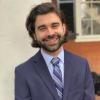
Parker Bach
Graduate student, M.A. in Media, Culture and Technology, University of VirginiaParker Bach is from Cincinnati, Ohio, and recently graduated as part of the first M.A. cohort in media, culture and technology at the University of Virginia, where he also received his bachelor’s degree in media studies. Parker has researched a variety of topics, including college campus emergency communication technologies, communication infrastructure rollout policy and news coverage of the recent Paycheck Protection Program. His master’s research focused on the Christian-conservative, online news satire of The Babylon Bee, with attention to its adaption of the carnivalesque to the conservative countersphere and its dependence on and conflict with social media platforms. As a rising doctoral student at UNC, Parker hopes to continue using political humor and contestations over humor as a window into such topics as the digitally mediated public sphere, platform governance, and online speech and censorship

Luca Bertocci
PhD student in Urban and Regional Development, Politecnico di Torino (Italy)My name is Luca Bertocci, I am a PhD student in Urban and Regional Development at the Politecnico di Torino (Italy). I have a bachelor in Literature and a Master Degree in Geography. My research straddles critical urban theory, urban political ecology and decolonial studies. The aim is to search for geographies and conditions of possibility to think about and visualize current forms of political negotiation within the production of socio-natural space. What could it mean, today, to think about the right to the urban? During my research, I will try to position myself both where large metropolises and nature merge and co-produce together, and where new infrastructures radically transform territories, forms of life and social contexts. In this way, I will try to highlight the heterogeneous lines of force and future scenarios emerging from certain ongoing trends, in particular the planetary metamorphosis of the city and the ecological crisis.

Edoardo Biscossi
PhD candidate at the University of Naples "L’Orientale"I am currently a PhD candidate at the University of Naples L’Orientale, and was previously a MA student in Digital Media & Critical Computing at Goldsmiths University of London. The research project I am working on looks at the relations between bodies, machines and information, within the planetary computational infrastructures of what has been called ‘platform’ or ‘gig’ economy, focusing specifically on the case of delivery platforms. It analyses how the bodies of the labour-power are integrated within the productive assemblages of this diffused industrial machine, enmeshed trough the material and abstract spaces of technological interfaces. It aims to understand labour and socio- economic relations, in relation to the more fundamental relations of bodies with technical ensembles, and to the co-existence and co-operation of human workers and machine intelligence. Within this framework, I also try to look at the urban space through software infrastructures, as a space of logistics, labour, consumption, objectification, and data circulation.

Davide Blotta
Master's student in Sociology and Social Research, University of BolognaI'm attending my last year of the master degree course of Sociology and Social Research for the University of Bologna (Alma Mater Studiorum). I've been interested in critical theory analysis and global studies since the writing of my bachelor degree thesis in 2019. My recent researches are based upon critical studies of vanguard vertical architecture, stealth infrastructures and mineral extraction. Following some of lectures that will be present in this current edition of the Summer School, I will be very pleased to learn some important critical suggestions about race, technology abolition in the era of post pandemic.

Maria Giulia Boccalatte
Graduate student, Historical and Oriental Studies - Curriculum "Global Cultures", University of BolognaIn 2016 Maria Giulia Boccalatte received her Bachelor degree in Philosophy at the University of Bologna. Her thesis in Aesthetics “L’esperienza estetica come atto di libertà. La riflessione sull’arte in Herbert Marcuse”, focused on Marcuse’s criticism on the capitalist society from a Eurocentric perspective. She graduated in 2020 in Historical and Oriental Studies Curriculum Global Cultures at the University of Bologna. She wrote her dissertation, under the supervision of professor Raffaele Laudani, in Atlantic and Global History of Modern Political Concepts, titled “Black Subjectivity and Historical Imagination: Black Identities in the Era of Globalization” focusing on the black identity and black struggles for freedom to advance a critique of globalization as the last stage of capitalism. She spent the second year at the University of Warwick under the Erasmus + study program where she carried out part of her research. She is currently working on her PhD research project stemming out of her dissertation.

Jacob Bolton
MA student, Centre for Research Architecture at GoldsmithsOn the MA programme at the Centre for Research Architecture, Goldsmiths. Geology, logistics, abolition.
Currently researching geology, colonialisms and resource struggle in the context of Bolivia’s lithium landscape and the 2019 coup d'etat. Interested in geology’s function as a natural science that polices (or collapses) the boundary between human and resource, and renders land (and people) extractable. Moving towards a more grounded understanding of resource futures as decolonial struggle.
Also researching the ‘liquid prison’ — the logistical turn in the UK carceral apparatus, and the rise of circulation in the (mis)management of criminalised populations. If prison has become logistical, then perhaps we can approach abolition as a project of counterlogistics.

Jacopo Bonasera
Phd student in History, Cultures and Global Politics, University of BolognaI graduated in Historical Sciences at the University of Bologna in November 2017 discussing a thesis entitled «Melancholy, Prophetism, Imagination. Thomas Hobbes and the Order of Modern Political Discourse». This work led me to writing an article on the same topic published by «Filosofia Politica» in 2019. My academic experience continues now as a Phd student in History, Cultures and Global Politics at the University of Bologna. My current doctoral research, supervised by Professor Paola Rudan, is concerned with the political and social thought of Thomas Robert Malthus. More specifically, I’m focusing on the way in which the author reshapes some key concepts of modern political thought (population, society, government, discipline, constitution) in order to develop a political answer to the crisis subsequent to the Atlantic Revolutions of late 18th century.

Isabel Bradley
PhD candidate in Romance Studies, Duke UniversityI am a PhD candidate in Romance Studies at Duke. My research is regionally centered on the circum-Caribbean, where I study the emergence of counter-plantation worlds from nonextractive ecologies such as subsistence plots. I am interested in how relational ecological knowledge and its ties to Afro- and indigenous cosmologies can generate lines of flight and futures beyond the west’s present monohumanist episteme. I am drawn to the intersections of critical cartography, material culture, embodied knowledges, Black geographies, the beyond-human, digital methods, and decolonial praxis. My dissertation project will examine the subversion of plantation taxonomies occasioned by encounters between the manioc plant and its human cultivators, from early colonization to the Plantationocene present.

Nicolaas Buitendag
Post-doctoral Fellow, North-West University, South AfricaBelieving that current global questions ask for broad structural responses, Dr. Nico Buitendag conducts transdisciplinary theoretical research that bridges law, politics, sociology, historiography and philosophy. Deeply influenced by autopoietic systems theory, his work attempts to project the theory further along its radical and anti-hierarchical horizon.
This has led to publications connecting theory to practical cases such as political hate-speech trials, sanctioned police violence at Marikana, the death of Steve Biko at the hands of the state, and border conflicts between Ethiopia and Eritrea. It has also resulted in the translation into English of several works of Niklas Luhmann, late pioneer of autopoietic systems theory, from German.
Currently Dr. Buitendag is distilling his doctoral work into a monograph (forthcoming from Aosis Publishing, 2022) which engages with the structural and systemic complicity of law, politics and science in colonial projects.

Hala Chekri
Third year student, BA Honours degree in Anthropology and Media Studies at Goldsmiths, University of LondonMy name is Hala Chekri, and I am Italo-Moroccan. I am currently graduating from Goldsmiths, University of London. I have a BA in Anthropology and Media. Prior to joining Goldsmiths, I studied South Asian Studies and Nepali language at the INALCO in Paris.
I am a Higher Education outreach officer for care leavers and Post16 refugees in care at the Lewisham Council in London.
My research interests are citizenship as a bordering practice, race and the ‘racialisation’ of migrants, and ‘whiteness’ in the post-colonial context. I am also interested in the experience and various representations of ‘second generation immigrants’ in Italy today.
I am keen to investigate the impact of the pandemic on displaced communities and the education of young people. I am looking forward to reflecting with the Global Studies and Critical Theory school about how we can contribute constructively to contemporary socio-political and economic dynamics interdisciplinary in academic writing.

Rahime Cokay Nebioglu
Postdoctoral Visiting Scholar, Literature Program, Duke UniversityRahime Cokay Nebioglu holds her PhD from Middle East Technical University. She has spent a year of her doctoral studies as a Fulbright scholar in the Literature Program at Duke, and she is currently conducting her postdoctoral research on "The Microfascistic Turn in the Post-Postmodern Era" in the same program at Duke. She is the author of Deleuze and the Schizoanalysis of Dystopia. Her research interests include utopian studies, continental philosophy, modernism(s), affect studies, comparative literature, and adaptation studies.

Pietro Corazza
Research fellow in Philosophy of Education, University of BolognaI am research fellow in Philosophy of Education at the University of Bologna. I hold a PhD in
Pedagogical Sciences, previously BA and MA in Philosophy.
My current research is aimed at studying the processes through which digital platforms produce
knowledge, with a focus on the concept of collective intelligence, and the related socio-political and
educational implications.
I am also engaged in studying and practising educational approaches such as Pedagogy of the
Oppressed, Theatre of the Oppressed, Philosophy for/with Children and Communities.

Lucas da Silva Lopes
Ph.D. student in Romance Studies, Duke UniversityI am a second-year Ph.D. student in Romance Studies at Duke University. I received my B.A. in Portuguese from the State University of Campinas (Unicamp, Brazil) and my M.A. in Literary Theory and Criticism also from Unicamp. In 2019, I was a Visiting Research fellow in the Department of English at the University of Victoria in British Columbia, Canada through a scholarship from the Emerging Leaders of the Americas program. I have previously specialized in William Faulkner’s portrayal of the American South, with increasing exploration of linkages to the Global South. From 2016 to 2018, I served as a secretary to ANPOLL (Brazil’s National Association for Graduate Studies and Research in Languages, Literature, and Linguistics). My current research interests include Modernism, Marxism, the Frankfurt School, and Latin American intellectual history.

Anna De Martino
Master’s student in Philosophy, University of Naples "Federico II"My name is Anna De Martino, student in Philosophy currently enrolled in a Master’s degree programme at the University of Naples Federico II. At the moment I am focusing my current studies and research on the development of my master's thesis, with the aim of completing my studies by July 2021.
My research focuses on the relationships between politics and epistemology within the thought of the French philosophers Maurice Merleau-Ponty, Jean François Lyotard and Gilles Deleuze, with particular attention to the dynamics related to their respective aesthetic theories in the field of vision and desire. I have previously been very interested in questions concerning biopolitics and its links with screens and modern digital technologies, and I would be very interested in dedicating and developing my future research in this field.

Giulia dos Prazeres Costa
Coordinator of International Justice and Memory and Truth, Secretariat of State for Social Development and Human Rights, Rio de Janeiro/ Erasmus Mundus Master’s Student in Human Rights Policy and Practice (EMHRPP)Giulia dos Prazeres Costa works in the State Government of Rio de Janeiro as Coordinator of International Justice and Memory and Truth at the Secretariat of State for Social Development and Human Rights. Master’s student (cohort 2021-2023) with full scholarship of the Erasmus Mundus Master’s Programme in Human Rights Policy and Practice (EMHRPP) at the University of Gothenburg (Sweden), the University of Deusto (Spain), the University of Roehampton (UK), and the Arctic University of Norway (Norway). Also, she is the Programme Representative of the EMHRPP at the Erasmus Mundus Association.
Giulia graduated in Law with an emphasis in State and Society and complementary training in Trade and International Business at the Pontifical Catholic University of Rio de Janeiro. She took part in an academic exchange with a full scholarship at the Universidad Autónoma de Madrid and in the EU-South America Global Governance at the FGV Jean Monnet Centre of Excellence.
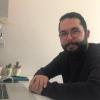
Soner Emec
Student at the Department of Political Science and International Relations, TED University, TurkeyI am Soner Emec, from Turkey. I am graduating this summer from TED University in Ankara, the Department of Political Science and International Relations. I have recently been offered a place for a two-year Master’s Programme in History and Oriental Studies at the University of Bologna. During my graduate studies in Bologna, I intend to work on advancing a theoretically rich understanding of postcolonialism. I am particularly interested in studying post-colonial thought, post-colonial imagery, and subaltern studies from a Gramscian approach. My long-term academic plans involve pursuing further studies on some of the fundamental issues within the framework of subaltern and postcolonial studies. In addition to my academic life, I have been part of some civil society organizations such as UcuncuYol that I contributed to it by writing on the Turkish political system and ideology.

Ludovica Fales
Documentary director, artist and academic/ PhD in Audiovisual StudiesLudovica Fales is a documentary director, artist and academic. Graduated in Philosophy between Italy and Germany and
subsequently graduated in documentary cinema at the National Film and Television School in the United Kingdom, Ludovica holds an
international PhD in Audiovisual Studies with a thesis on participative and interactive collective narrative. Lecturing in documentary theory and practice, experimental
and interactive film at University College London since 2015, Ludovica developed a dual identity as director and academic. This led her to be
interested in the political exploration of personal and collective memory, also through use of archival material and new media. Her documentary
films won awards and have been shown in festivals and cinemas internationally. Ludovica is currently working on her hybrid feature film""Lala"".
Ludovica, who also has experience as a producer and production assistant for documentaries for BBC and Al Jazeera, she has been
collaborating for years with the international circuit of documentary festivals, as a programmer and teacher. She collaborated with DeriveApprodi journal and now collaborates with OperaViva magazine.

Ira Haeussler
Multi-disciplinary designer and scholar/ MPhil in Identities and Cultures of Europe at Trinity College (Dublin, Ireland)Ira Haeussler is a multi-disciplinary designer and scholar. With a Bachelor of Arts in Visual Communication and a Masters of Philosophy from Trinity College Dublin, Ira observes questions of identity through the lens of the visual arts and humanities in her work, exploring the intersection of fine art, craft and culture. Highlighting her passion for interdisciplinary research, Ira’s body of work thus far spans the fields of design and art history, linguistics, as well as sociological and philosophical topics.

Masha Hassan
Graduate student in "Global Cultures", University of BolognaI am an Indian student who has graduated in a Masters in Global Cultures at the University of Bologna, Italy. Focusing on colonial and post-colonial studies, my interest lies in understanding identity constructions at the margins, the ‘liminal identities’ and also tracing transnational languages of solidarity in resistance movements. I am currently working at the Home Office in Bologna as an interpreter for Political asylum seekers, translating from Urdu, Hindi, Punjabi to Italian and I have also volunteered as a translator at the French Italian borders like Ventimiglia and Oulx. I occasionally write for the Times of India, Speaking Tree column.

Jessica Hernandez
Graduate student in History, University of VirginiaJessica Hernandez received her bachelor’s degree in Peace and Conflict Studies from Swarthmore College. A graduate student in History at the University of Virginia, Jessica studies 20th century African American cultural history as well as critical theory and aesthetics. She is particularly interested in visual art, film, and print culture.

Umer Jan
Ph.D. student at the Department of Politics and International Relations, University of WestminsterAfter finishing my master’s degree in International Relations from Islamic University of Kashmir, I joined the University of Westminster for an M.Phil./Ph.D. degree in Politics, as a Global Challenges Research scholar. My research focuses on the functioning of civil bureaucracies in India-controlled Kashmir, institutions that have been strategically crafted to further enable Indian state’s heavily contested military rule in the region. For my Ph.D. research, I draw from a wide-ranging source of critical theory, from Antonio Gramsci’s hegemony to Arturo Escobar’s post-development theory. Another trajectory of my ongoing research focuses on India’s colonial necropolitics and political resistance in Kashmir. In the latter, I am interested in how people in Kashmir have adopted death as a form of resistance (necro-resistance) and how this adoption transforms the nature of mourning, memory, and social milieu as a whole. I am also a freelance journalist writing for Jacobin, Aljazeera, LA Review of Books and elsewhere.

Janet Lawler
Ph.D. Candidate in Political Theory in the Department of Politics, University of VirginiaI am Ph.D. Candidate in Political Theory in the Department of Politics at the University of Virginia. My focus is on democratic theories of digital media and new technologies with a secondary interest in its feminist intersectionality. I am especially motivated by questions concerning how to structure digital spaces to better suit the norms of democratic discourse and public resources. My dissertation captures the implications of the many ways digital spaces organize, change, and curate our public activity, articulating a new conceptualization of physicality which understands social media sites as infrastructurally governed discursive spaces. By theorizing on algorithmic justice, employing critical theory, and feminist thought, I argue for more public governance of digital spaces to avoid algorithmically reifying social inequities online. In addition, I am also greatly interested and have taught in Ancient Greek and Roman political thought.
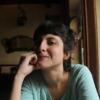
Marcela Lins
Ph.D. candidate in Communication at the Federal University of Minas GeraisMarcela is a Ph.D candidate in Communication at the Federal University of Minas Gerais. She holds a Master’s degree in Communication at the Federal University of Pernambuco. Her current project investigates three major health crises that occurred in Brazil: the outbreak of yellow fever in the 1850s; the Spanish flu crisis, which spread throughout the country in 1918; and the 2020 pandemic caused by the new coronavirus. The articulation between the three events is carried out through an archaeological and genealogical perspective, which seeks to understand what are the regimes of power-knowledge that are sustained in the voices that manage public policies over an expanded temporality.

Ferlanda Luna
Graduate student in "Regional Economy and Public Policies", State University of Santa Cruz (UESC)Master in Regional Economics and Public Policies at State University of Santa Cruz (UESC), Postgraduate in Public Policies, Social and Collective Rights and Graduated in Law at State University of Santa Cruz (UESC).
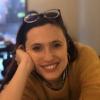
Valentina Marconi
Ph.D. student in Global Studies, University of Urbino (Italy)Valentina Marconi’s work examines policies and practices of border violence across the European Union. In her multi-sited analysis, she looks at different manifestations of border violence and the forms of individual and collective resistance they entail. As part of her research, she did fieldwork in the Spanish enclaves of Ceuta and Melilla and carried out both in-person and online interviews to collect accounts on illegalised practices of border crossing along the main migratory routes leading to the EU territory. Currently, Valentina is a PhD student in Global Studies at the University of Urbino (Italy) and holds a MSc in Arab world studies from Durham University (UK). Before starting her doctoral studies, she co-authored two documentaries on migration: ‘Barcelona: ready to welcome?’ and ‘Violent borders, an investigative documentary on the Balkan route’.

Florencia Mazzadi
Historian, art curator, and advisor in matters of public defense related to justice and race for migrant people in ArgentinaHistorian, art curator, and advisor in matters of public defense related to justice and race for migrant people in Argentina. Head of Center for Research on Film, Human Rights and Migration, Director of CineMigrante IFF, an annual interdisciplinary work programme, a space of convergence for artists, thinkers, curators, activists, and different organizations of the civil society focused on effecting and setting up dialogues with the society in general, aimed at the reconstruction of collective imageries. The work program locates human mobility in contemporary times, from the motion of the "becoming black of the world", developing from the intersection between the reconstitution of situated knowledges and the conformation of collective experiences, towards the reverberations of critical knowledge. Her recent curatorships center its gaze on the persistence of coloniality and the possible ways of representation outside it. She currently works on speculative fabulation, ways to re-inhabit myths and orality as a way to enter time.

Kiyomi Ren Mino
MA student in Philosophy at the Freie Universität, BerlinKiyomi Ren Mino completed their BA in philosophy at the New School in New York and is currently a MA student in philosophy at the Freie Universität in Berlin. Their current research interests include critical theory, racialization and health, and theories of social and political movements and their ensuing cultural, material and networked transformations.
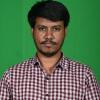
Srikanth Nayaka
PhD candidate at the Department of Humanities and Social Sciences, Indian Institute of Technology (IIT), TirupatiMr. Srikanth Nayaka is a PhD candidate at the Department of Humanities and Social Sciences, Indian Institute of Technology (IIT), Tirupati. For his doctoral research, he is examining the emerging digital media practices and rural video cultures in South India.
Mr. Srikanth Nayaka completed his MPhil in media studies from the Centre for Media Studies, Jawaharlal Nehru University, New Delhi. He has a master’s degree in media and communication from the University of Hyderabad, and a bachelor’s degree in mass communication and journalism from the English and Foreign Languages University, Hyderabad. He has participated in several national and international conferences and presented his research papers at the University of Oregon, Eugene, USA and Moscow State University, Russia. In 2019, he was awarded a travel grant from the IAMCR to present his paper “Mapping the Circuit of Culture: A Study of Regional Digital Mediascape in India” at the Complutense University of Madrid, Spain.

Francesca Nicolodi
Student in Ethics and Politics, Bard College BerlinMy name is Francesca Nicolodi and I am a student of Bard College Berlin, majoring in ethics and politics. I am a 21 year old Italian, who grew up in France and in the United Kingdom. At the moment, I am a member of the CEU Roma Student Association, which is involved in raising awareness of Romani struggles in the EU.

Bernardo Paci
PhD student in Philosophy and Human Sciences, University of MilanI am currently a PhD student in Philosophy and Human Sciences at the University of Milan and a
teaching assistant for the courses of History of Moral Philosophy and Human-Animal Studies in the
same university, where I also collaborate with the journal “Balthazar” as a member of the editorial
board. My research project concerns the extension of Marx’s critique of political economy to the
theories of human capital and the related material and violent processes of capital accumulation,
with particular attention to the intersections of class, race and gender and to colonial and
postcolonial history (especially in Latin America and southern Africa). I have also worked on
critiques of neoliberal thought, with particular reference to Friedrich von Hayek, philosophy of
history and historical revisionism.

Alessandro Peregalli
PhD in Latin American Studies, Departamento de Filosofía y Letras, Universidad Nacional Autónoma de México (UNAM)Alessandro Peregalli is a PhD doctor in Latin American Studies for the Universidad Nacional Autónoma de México (UNAM). He has a bachelor degree in Economic History in the Università degli Studi di Milano and a master in World History in the Università di Bologna. He investigated logistics infrastructure and corridors in Latina America, focusing on the Initiative for the Integration of South American Regional Infrastructure (IIRSA). His main interests are Critical Logistics Studies, Latin American critical thinking, Latin American contemporary history, extractivism and geography of territorial conflicts. He is member of CLACSO's working group “Territorios en disputa y r-existencia” and of the Laboratório de Estudos de Movimentos Sociais e Territorialidades (LEMTO) of the Universidade Federal Fluminense of Niterói, Brazil. He wrote for several review and collective books among Mexico, Brazil, Spain, UK and Italy. He currently lives in Belo Horizonte, Brazil.
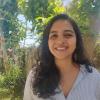
Uttara Purandare
PhD Candidate, Centre for Policy Studies (CPS), IIT Bombay-Monash Research AcademyUttara Purandare is pursuing her PhD in Public Policy under a joint programme offered by IIT Bombay and Monash University. Her area of research is smart cities. Looking specifically at the intersection of technology, gender, and governance, Uttara’s research focuses on how safety and surveillance are constructed by the smart city rhetoric and the role of private sector firms in governing the smart city. The COVID-19 pandemic and the technologies that have been introduced by national governments and smart cities purportedly to curb the spread of the virus have raised interesting questions about privacy and citizens’ rights during a crisis. Uttara is presently exploring some of these questions within the Indian context.
Uttara has a BA in Economics and Sociology from St. Xavier’s College, Mumbai and an MA in Public Policy (Governance and Development) from the International Institute of Social Studies (ISS), The Hague and the University of York, UK.

Laura Raccanelli
Graduate student in Cultural Anthropology and Ethnology at the Department of Cultures, Politics and Society, University of TurinLaura Raccanelli is a graduate student in Cultural Anthropology and Ethnology at the Department of Cultures, Politics and Society, University of Turin. She holds a bachelor in Anthropology, Religion and Oriental Studies at the University of Bologna. Her master thesis research was based on an urban ethnography of an highly stigmatized peripheral neighborhood of the city of Turin. Her main research interests are in critical urban studies and ethnographic methods, center-periphery dialectic, territorial stigmatization, segregation and structural inequality in the western city. She is currently focusing on the study of anthropology of memory and collective representation of identity and belonging in the territories of the exclusion, related to the production of visibility or invisibility of lives exposed to the margin.

Tania Rispoli
PhD candidate in Romance Studies, Duke UniversityTania Rispoli holds a doctorate in Philosophy from Università degli Studi di Roma “Tor Vergata” and she is currently PhD candidate in Romance Studies with an emphasis on Gender, Sexualities & Feminist Studies at Duke University. She is author of Tumulti (DeriveApprodi 2011, with Augusto Illuminati) and Machiavelli’s Navigation: Historical Imitation and Political Cartography (Brill, forthcoming) and of articles in critical political theory, feminist theory, and digital feminism. She is member of the editorial board of the Italian media outlet DinamoPress, co-author with Yanping Ni et al. of the podcast “Re-thinking Care in the Times of COVID-19”, and part of Duke Humanities Unbounded Lab “Revaluing Care”. She also translated from English into Italian Michael Hardt and Antonio Negri’s, Assembly (2018), and Sandro Mezzadra and Brett Nielsen, The Politics of Operations (2021).

Davide Rizzardi
Master's student in International Economic Relations, University of Buenos AiresDavide Rizzardi - Master student in International Economic Relations at the University of Buenos Aires; Bachelor’s degree in International Development and Cooperation at the University of Bologna.
I’m an Italian student, researcher and musician. My research focuses on unevenness of capitalist development thought as a unified phenomenon. My approach tries to combine the economic perspective with the ecological and cognitive ones in order to overcome the fictious separations that divide humans and nature, mind and body, discourse and matter. In particular, I’m interested in understanding the condition of the most vulnerable territories and peoples. Besides my academic activity, I investigate the otherness with my artistic project unPluriverso. This pluriverse, in fact, is what I’m devoted to: a world in which many worlds peacefully coexist, a world of tolerance and mutual respect where the other is not seen as the enemy but rather as a complementary beauty.

Facundo C. Rocca
Postdoctoral fellow at the Laboratorio de Investigación en Ciencias Humanas (CONICET/UNSAM)Facundo C. Rocca graduated in Political Science from the Universidad de Buenos Aires in Argentina and holds a PhD in Philosophy from the Universidad Nacional de San Martín (UNSAM) and the Université Paris 8. He currently works as a postdoctoral fellow at the Laboratorio de Investigación en Ciencias Humanas (CONICET/UNSAM). His research lies at the intersection of the conceptual history of modern political thought, focusing especially on the concepts of law and rights, the history of marxian thought, and the critical theories of rights and citizenship posited by postcolonial, feminist and queer studies. He is also a member of BIOS, a transdisciplinary research collective on subaltern biopolitics, biological techno-feminisms and post-dualist critical theory. As part of this collective project he has recently published two essays that discusses the notion of a biopolitics from below: “Apuntes para una biopolítica desde abajo” and “Una genealogía tecno-feminista de las biopolíticas subalternas”.

Greta Rossi
MA in International Relations, University of BolognaI hold a BA in International Affairs from John Cabot University in Rome and an MA in International Relations from the University of Bologna. I graduated in March 2021 with a final dissertation on feminist politics during the Covid-19 pandemic in Italy, combining social movement studies with political anthropology and disaster studies. Elements coming from these different fields were employed to understand contentious politics during critical junctures like the pandemic period, and to conceptualize the pandemic itself. My academic research has thus far focused on the political effects of social movements’ mobilization, with particular reference to feminist and far right groups in Italy and the US.

Eduardo Sato
PhD candidate in Musicology, University of North Carolina at Chapel HillEduardo Sato is a PhD candidate in Musicology from the University of North Carolina at Chapel Hill. He holds a MA degree in Musicology from UNC and has completed a MPhil in Brazilian Studies at the University of São Paulo, after receiving his BA in Social Sciences from the same institution. His dissertation examines the idea of Brazilian music as framed through travels and border crossings of musicians and intellectuals in the first half of the twentieth century. Broader interests include social theory, sound studies, musical mediations, mobility and border studies, global modernisms, and archival research.
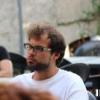
Federico Simoni
Master's student in Philosophy, University of BolognaMy name is Federico Simoni, and I was born and raised in Bologna, where I graduated in Philosophy with a thesis involving Hegel's political theory (and in particular the Elements of the Philosophy of Right). My main interests therefore concern german classical philosophy, and I am currently writing my master degree's thesis on Karl Marx's Capital. I am focusing on the Marxian studies currently developing with the new critical edition of Marx’s complete works (MEGA2), and hope to contribute myself to their dissemination. Besides my research, I have been involved for years in right to housing activism in Bologna.

Parul Srivastava
Ph.D. candidate in the Department of History, University of Hyderabad/ Fulbright-Nehru Doctoral Research Fellow 2020-2021, Department of History, University of Massachusetts AmherstParul Srivastava is a Fulbright-Nehru Doctoral Research Fellow 2020-2021 from India visiting the Department of History, University of Massachusetts Amherst. She is a Ph.D. candidate in the Department of History, University of Hyderabad. For her research, she is looking at the Oral narratives of Partition (1947) migrants and eyewitnesses to understand the suffering of the common people of the Subcontinent through questions of pain, affect, religiosity, and broken relationships. She is an alumnus of JNU, New Delhi, and Ramjas College, the University of Delhi where she obtained her Master's and Bachelor's degree respectively. In 2018, she was selected for the Story Scholar Program by the Berkeley-based ‘1947 Partition Archive’ jointly with Stanford University Libraries under which she recorded the experiences of Partition migrants and eyewitnesses. She has assisted the 1947 Partition Archive as a Convener on their project titled, ‘Responsible Accessibility and ethical use of conflict zone oral histories’ in 2019-2020.

Cera Y. J. Tan
PhD candidate in a joint-degree program in Literature at the National University of Singapore and Digital Humanities at King’s College LondonCera Y. J. Tan is a PhD candidate in a joint-degree program in Literature at the National University of Singapore and Digital Humanities at King’s College London. She holds a BA and MA from the National University of Singapore, English Language and Literature department. Her research fields include critical and cultural theory with a focus on biopolitics and technology. She is currently researching the structure of anticipation in the biopolitical oeuvre and its implications on predictive algorithms driving the various facets of life, not least health, law, and civics. Her work has appeared in the journals Cultural Politics and Media Art Study and Theory. Her recent publication examined the techno-biopolitical stakes of contact-tracing technologies implemented in Singapore during the height of the epidemiological crisis.

Shaun Terry
PhD student in History of Consciousness, University of California, Santa CruzI’m a PhD student in UC-Santa Cruz’s History of Consciousness program. My background lies primarily in communication and Birmingham School-style cultural studies. Generally, my research pertains to the political theological, economic, and aesthetic determinants of far-right phenomena. My hope is to show that, in spite of oft-noted ideological and rhetorical inconsistencies, genealogical interpretations of fascism and other far-right movements can be shown to cohere with regard to emotional, practical (in the Bourdieuian sense), and cultural processes. In the sense by which many contemporary scholars of decoloniality use the concept, fascism can be thought of as entailing a very different political ontology from those of whatever liberalisms or leftisms. I’m struck by how the rise of the far right has coincided with the ever-increasing proliferation of internet engagement and what that might imply for the future of critical thought and leftist politics.

Luca Villaggi
Graduate Student in Sociology and Social Research, University of BolognaLuca Villaggi holds a bachelor degree in Economics and a master degree in Sociology and Social Research from the University of Bologna. He graduated in March 2021 and he carried out a theoretical and empirical research on the current transformations of welfare systems, assuming as main hypothesis the crisis of social reproduction in the context of contemporary capitalism. Currently, he is applying for PhD courses, in order to continue his study and research activities. His intellectual interests concern the neoliberal transformations of welfare and labor, focusing on their differential outcomes in terms of class, gender and race.
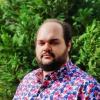
Daniel Zengotita
Ph.D. student at the Department of Political Science, University of FloridaDaniel Hiram Zengotita (they/any) is a second-year Political Theory Ph.D. student at the University of Florida in the Department of Political Science. Daniel’s research interrogates disparate imaginings of democratic citizenship in the U.S., Brazil, and the Caribbean. In it, they draw together intertwining-intersecting conversations on affect, judgment, and experience to show how historically-marginalized communities contest sexism, homo/transphobia, xenophobia, and racism. Currently, they are researching the relationship between code-switching, language-acquisition, and racialized competency-standards in primary education and their respective roles in the formation of political judgment. As part of their vision of building a more collaborative graduate program, Daniel, along with Sabrina Marasa, Kelly Richardson, and Glen Billesbach are working to make graduate student efforts visible while improving the quality of their development through workshops, peer-to-peer editing, and additional funding to defray the costs of conducting/presenting research. Thus, together we have founded the Race, Gender, and Ethnicity Working Group and the Seminar Series on Race, Gender, and Ethnicity. The aim of this endeavor is to promote our graduate students and their work, but also to show what kind of work our students are pioneering and how it can help draw more diverse voices into the discipline of political science.


